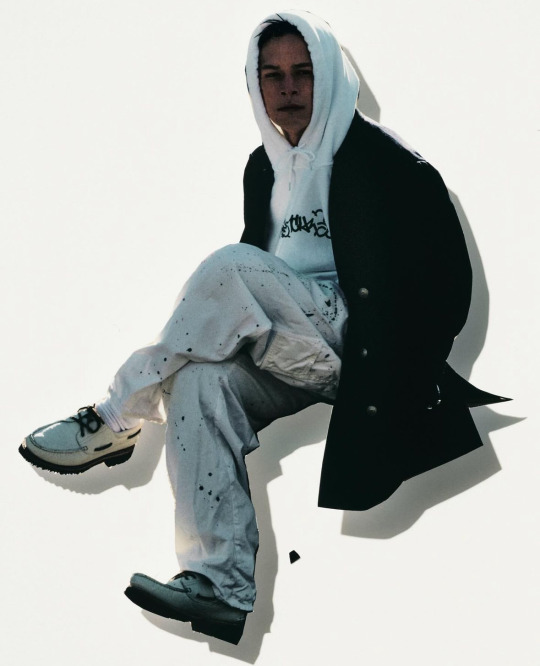#AKIO HASEGAWA
Explore tagged Tumblr posts
Text




nanamica AW24
Styled by Akio Hasegawa
69 notes
·
View notes
Text




POPEYE
15 notes
·
View notes
Text


AKIO HASEGAWA. HOUYHNHNM
13 notes
·
View notes
Text




















Ken (1964)
3 notes
·
View notes
Text



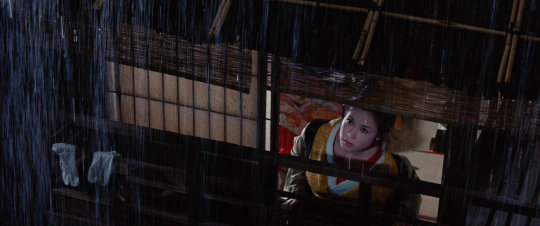


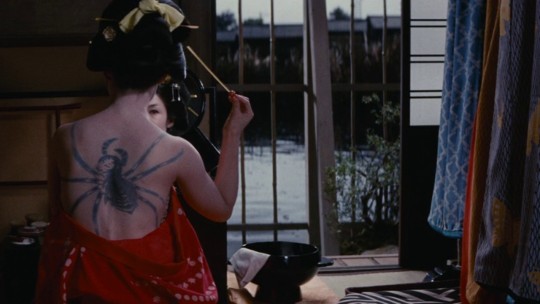


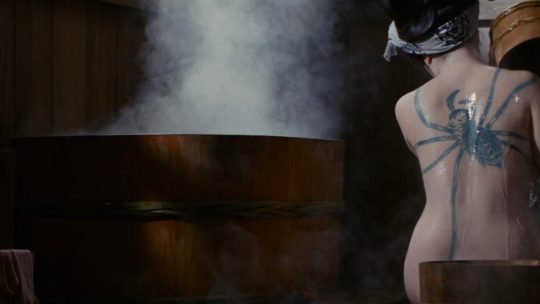
Irezumi (1966)
"See how fascinating this painting is? A beauty trampling the corpses of countless men at her feet, feasting on their flesh and blood to grow and prosper. Tell me... don't you think she resembles you?"
#irezumi#japanese cinema#1966#yasuzô masumura#jun'ichirô tanizaki#kaneto shindô#ayako wakao#akio hasegawa#gaku yamamoto#kei satô#fujio suga#reiko fujiwara#asao uchida#kikue môri#hikaru hayashi#absolutely beautiful film. full of deep‚ rich colours and vibrant detail‚ a masterful composition on a morbid subject#I've loved the other Masumura films I've seen‚ and appreciate his aesthetic focus and eye for detail but this is the first of his colour#works I've seen and it's a whole new level. near perfect in pure visual terms; plotting and script‚ while suitably dramatic#and tragic‚ aren't quite as perfect. centres on a terrific performance from Wakao as a woman transformed from an impulsive and#irresponsible but romantic girl into a cold‚ near monstrous vision of vengeful hatred. arguably Masumura is asking the viewer to look at#Wakao's distorted personality by the end of the film as somewhat grotesque or at least as tragic but i gotta say that in 2023 it's hard not#to feel a frisson of 'good for her' as she engineers the bloody deaths of every man who ever wronged her#the character could perhaps have used a little more nuance and I'd also have liked to have seen more made of the parallels in trading flesh#(both figuratively as sex work and literally as canvas for tattooists) but these are relatively minor gripes. a kind of updated fairy tale#with a moralist slant‚ but a deeply beautiful one. rain swept and blood drenched‚ deep shadows and pale skin‚ flashing blades and#rich fabric folds. sumptuous.
18 notes
·
View notes
Text





get that bag ig…. piece of shit groomer
#revolutionary girl utena#adolescence of utena#akio ohtori#anthy himemiya#juri arisugawa#utena tenjou#rgu#rgu utena#touga kiryuu#kyouichi saionji#miki kaoru#nanami kiryuu#kozue kaoru#shiori takahashi#wakaba shinohara#ruka tsuchiya#shojo kakumei utena#sku#be-papas#chiho saito#kunihiko ikuhara#magical girl#shinya hasegawa#yōji enokido#yūichirō oguro
343 notes
·
View notes
Text
I realised that a lot of the Puppet’s Game motive secrets don’t get explained very thoroughly in the story, so I’d like to explain them ^^
These are in the order the secrets are listed in canon btw (also spoilers)
Starting with Anya: “You over-exaggerate your emotions to hide the fact that you are not a human being.”
This one is fairly self explanatory. Anya is a machine who cannot feel strong emotions, so she pretends to be hyperactive and overly emotional to compensate. Her true personality is actually rather calm.
Next, Hana: “You didn’t mean to hurt anyone, but the competition got the better of you.”
Again, self explanatory if you know why Hana is the way she is. Hana has a disorder called IED or Intermittent Explosive Disorder which causes her to experience uncontrollable and explosive outbursts of rage and aggression (among other symptoms). A boy she was racing against when she was sixteen set her off into one of these outbursts and she accidentally killed him.
Next, Jeanne: “Your whole family was killed because of you. If only you’d let your passion go.”
This one is where we start getting into the needs explaining territory, seeing as Kiyoshi (and everyone else) assumed it meant the secret’s owner literally killed their family. Jeanne critiqued the son of a man with a lot of dangerous connections’ art and he didn’t take it kindly. He complained to his father and his father replied by hiring an assassin to kill Jeanne’s family, leaving them orphaned at fourteen.
Next, our protagonist, Kiyoshi: “You constantly let yourself be tricked and used by people with power over you. You don’t want to be in control of yourself anymore.”
Kiyoshi, despite not remembering the events of that day, deeply blames himself for what happened to his parents despite being six when it happened. Because of that, he allowed himself to be pushed around by the whims of large news companies and corporations, letting them send him off to god knows where to write about something no other journalist was willing to risk their life over. Because he forgot it all, those companies saw him as the perfect fit for writing about corruption and war firsthand, as he’d not have to deal with the trauma of what he saw (or so they thought). That’s also how he became the Ultimate Journalist.
Next, Chiyo: “You’ve always been jealous of her for being the first of your Ultimate Talent. But erasing her from every book, website, and memorial is a tad far, right?”
Chiyo’s secret refers to Ruruka Ando (a character from the Danganronpa 3 anime), who was also the Ultimate Confectioner. When Chiyo first got accepted to Hope’s Peak, she was incredibly overcome with jealousy by the fact that (as far as she knew) she was the only one of her peers to not have an ‘original’ talent (This wasn’t true, as Takeshi and Sage also have talents that have appeared in the actual Danganronpa franchise, but Chiyo didn’t know that). This jealousy led her to go into every user-edited website and source that had any information on Ruruka Ando and delete it from their database. She even ripped out pages from library books that talked about her. Chiyo feels incredibly guilty for this, but deep in her heart she is still jealous of Ruruka.
Next, Mei: “You’ve killed for her, and you’d do it again.”
Mei’s is also incredibly self explanatory, in fact the explanation is routinely shoved down your throat for five chapters. Mei was forced into assassin work when she was six under threat of Chiyo and her parents being killed if she wasn’t compliant.
Next, Tomás: “You despise the people who admire you. A few bad apples spoil the barrel, after all.”
When Tomás was thirteen, he was abducted by a group of crazed fans. They held him hostage for four days. And while there were no signs of physical harm anywhere on him, Tomás profusely refuses to tell anyone what happened during those four days. This wasn’t the last time he was kidnapped either, but it was certainly the worst.
Next, Takeshi: “You’ll never let them forget what they did to her, no matter what becomes of you.”
Takeshi’s younger sister, Nastyusha, was murdered when she was sixteen and he was twenty. Takeshi practically went insane from grief and stopped at nothing to find the identity of her killer and make them pay. Eventually he found out that Nastyusha had been killed by a hitman, and so he placed a hit on someone dear to the person that committed the murder and also did a few other things.
Next, Kenji: “You’re in denial about being who you truly are because it will ruin your life.”
Kenji is a black, gay man. He also professionally plays a sport with an insanely homophobic and racist fan base. As such, Kenji pushed down his homosexuality and repressed it to spare himself from the increased torment he knew would follow if he publicly came out of the closet. He hasn’t even thought about coming out to his own family.
Next, Sage: “You’re dying, but you still refuse to quit.”
Sage is dying of a terminal illness. Sage is also playing a sport that requires her to move her body way past her limits. Playing tennis is actively shortening her lifespan, but Sage loves playing tennis too much to let it go.
Next, Haruto: “You’ve had your heart broken many times by many people, but that doesn’t excuse you doing it to others in return.”
Perhaps the worst offender of the secrets not being explained in Puppet’s Game, seeing as it gets completely brushed over despite it’s… concerning implications. Oops.
After Haruto was outed by his classmate to the rest of his school, he was constantly harassed and bullied for being gay. One of the ways his male bullies would torment him was to pretend to also be gay and go out with him for a while, only to break his heart on a day that meant a lot to him (birthdays, anniversaries, etc). After a while, Haruto got sick of it and started doing the exact same thing to his female bullies. He would pretend to be “cured” of his homosexuality, make one of them fall in love with him, and then completely crush them. Despite dropping out at thirteen to take care of Daisuke, he kept in contact with several people who went to his school specifically so he could continue doing this to get revenge for the bullying he endured.
Next, Ozias: “I struggled with choosing what secret to be your motive. You’re an open book, you see.
…That is, about everything except your sexuality.”
Ozias is gay. He’s also a priest that lives in Texas with a homophobic, conservative family. Safe to say, being out of the closet would be incredibly dangerous for him. Ozias also has an awful lot of internalised homophobia, whether he realises it or not. Because of this, he refuses to even think about his sexuality until he’s explicitly forced to.
Next, Carys: “You exploit and take advantage of the weak for your own enjoyment.”
Carys was born lacking a moral compass and thus everything she does is for her own benefit and nobody else’s. She also doesn’t feel bad at all for hurting others to get what she wants. This caused her to develop incredibly manipulative behaviour and tendencies (that her parents, believing she could do no wrong, unknowingly encouraged). To Carys, manipulation is nothing but a way to keep herself entertained. She doesn’t really care who she hurts, or who she takes things from. The reason she specifically targets ‘the weak’ is because they’re less effort to manipulate if they’re already emotionally fragile.
Next, Sora: “You only took on your profession to ensure nobody else lived the life you did.”
Sora was profusely bullied throughout their elementary and middle school years. Their bullies have even gone as far as trying to set them on fire just because hurting them was funny. This bullying left Sora extremely traumatised, and also with a burning desire for justice. They moved to a different school for high school and, despite their many scars and disabilities caused by the bullying, were incredibly popular for their talent in public speaking. They became the president of their school’s student council in their first year and remained in that position throughout their entire high school education. They went into politics post graduation and ended up become an incredibly influential politician. They put in place several anti-bullying laws to stop other children from having the same childhood they had.
Next, Rikina: “You’re in love with your star player, but you know she couldn’t care less about you.”
This secret is worded quite harshly. The truth is that Rikina’s star player, Yuri, was murdered when they were fourteen. Rikina is still hung up over her, as she had a crush on her at the time. The reason it says Yuri couldn’t care less about her is because she’s dead and can’t care about anything at all.
Finally, Akio: “You despise your profession and everything connected to it, you only took it on as an excuse to stay with your best friend.”
Akio, to put it kindly, fucking despises sports. However, he’s also in love with someone who would attempt to play football with two broken legs. So he’d have an excuse to be with Kenji for more time than he otherwise would’ve been, Akio learned everything about football and twenty-ish other sports and went into refereeing as a workaround to actually playing sports himself. But don’t let that workaround fool you, he still hates refereeing just as much as he hates playing.
#drpg#danganronpa puppets game#oc#fanganronpa#anastasia kuznetsov#hana sakurai#jeanne duval#kiyoshi suzuki#chiyo aoki#mei aoki#tomás alves#takeshi wakabayashi#kenji hayashida#sage floros#haruto hyuga#ozias edison#carys gwilym#sora hasegawa#rikina gushiken#akio shimizu#my ocs#danganronpa#fun fact this is also the order I decided on their secrets in
8 notes
·
View notes
Text
puppet game...

implied spoilers for DRPG ch3 below!!!!!!
mister miseryguts!

@drpuppetsgame <- follow em
5 notes
·
View notes
Text
I watched James Somerton's final video, and all I got was this 6 page document
As soon as I learned his final unreleased video was on Revolutionary Girl Utena, I knew I had to hate watch it. I didn't know that I'd spend the following 4 hours making a comprehensive doc on everything I hated about it. But here we are.
The TLDR (is this too long to be a TLDR?)
The intro section, as well as Part 2, are directly plagiarized from wikipedia. The rest is unclear.
He makes a “haha this show is so weird right guys” joke 10 different times
He reads Anthy as so emotionally stunted she literally has to be taught how to think for herself, and believes that being the rose bride makes her feel good
He says that his reading is ‘vastly different” from the rest of the community, before boldly stating that this is because he sees it as a “deeply allegorical and symbolic story”
He sees the sexual abuse as “not to be taken literally”
Insists that the show be separated into parts that are strictly literal and strictly allegorical for the entirety of parts 3 and 4, before making the contradictory move of analyzing characters as allegories during part 5
The only characters that get dedicated sections are Akio and Dios, who he doesn’t believe are the same person.
He says Dios gets his powers by “deflowering women”
He calls Akio, known child predator, a chaotic bisexual
Uses 14 year old SA survivor Anthy’s passive personality to make a joke about her being a bottom
His final point is that Utena was the real prince all along
There are no citations
Anyway, full version for people who hate themselves under the cut. With time codes, because I cite my sources.
Part 1: Intro
This entire section is almost exclusively quoted from the Wikipedia article for Revolutionary Girl Utena. Words have been changed, but the order at which certain topics come up is not. Highlights include:
0:56 In his introduction of Be-Papas, lists the founding members in literally the exact same order as Wikipedia.
1:40-2:00 His list of Be-Papas previous works is lifted entirely from wikipedia, only with the words changed. This leads to a strange moment at 1:52 where he claims Be-papas ‘lent their talents to’ Neon Genesis Evangelion, a show which started production at least a year before Be-papas was founded. On the wikipedia article for Utena, this is instead referring to the previous work of Shinya Hasegawa and Yōji Enokido
4:23 he uses a quote by Yūichirō Oguro describing the production as a “tug of war”. He seems to have lifted this in its entirety from Wikipedia, as he does not cite the actual source it is from (the box set companion book, btw)
As for James Somerton originals, at 0:44 he claims that out of all magical girl series,”none to my knowledge have been more discussed and dissected than the 1997 series Revolutionary Girl Utena” He will go back on this at 5:05, where he states that “Sailor Moon takes the lion’s share of discussion” in regard to influential magical girl anime
Part 2: Part 1
(At least I know I’m not funny, unlike James Somerton)
Speaking of which. Here is every single time he makes a “wow this show is sooooo weird you guys” joke: 6:00, 8:50, 10:40, 10:58, 13:46, 17:07, 24:16, 30:34, 41:19, 48:01
Here’s every time the punchline to the joke is the existence of Nanami, a character who he otherwise completely disregards: 10:56, 12:05, 16:22, 42:40
6:16 Claims that the “Apocalypse saga” and “Akio Ohtori saga’ are two names for the same several episodes, depending on the release. This is untrue. Instead, different releases either only have the Apocalypse saga, or split the episodes into an Akio Ohtori saga and then the Apocalypse saga.
7:58 Claims Utena intervening on Anthy’s behalf begins the first duel. While this happens in the movie, Touga intervenes in the scene he uses clips from (like literally right after the shot he uses in the video). Utena only gets drawn into the duels when Wakaba’s love note to Saionji is posted. Youtuber Noralities’ Utena video also gets this wrong, which makes me wonder if this was copied.
9:09 Claims Akio’s “End of the World” moniker is actually more closely translated to “Apocalypse”. In reality, the translation moves away from a more apocalyptic reading, with 世界の果て (Sekai no hate) apparently translating closer to “the furthest reach of a known world” or “edge of the world”. (Love the implications of this translation, but I digress)
9:10 As can be assumed from the previous point, this means I can’t find any sources that point to them not using the title “apocalypse” for religious reasons
10:10 Uses Anthy’s extreme passivity under her Rose bride persona to make a top/bottom joke. I’m gonna repeat this in case you’re just skimming. He uses a trait that likely stems from years of abuse, (possibly exaggerated by the persona Anthy uses to manipulate people), and uses it to call her a bottom.
He also just doesn’t seem to understand how the whole point of Utena constantly telling Anthy that she's just a normal girl who should make more friends is framed as Utena imposing her will on Anthy, just as much as the previous Engaged have done.
11:54 Apologies in advance for my most “um, actually!” point yet, but technically his statement that Anthy stops being host to the Sword of Dios is wrong. Akio literally pulls a sword out of her chest in the final duel. It's a more evil-looking sword of Dios, granted.
13:02 !!! CANTARELLA SCENE ALERT !!! He interprets it as them fighting over Akio?? Which like. I will allow people to have their own interpretations of vague and symbolic scenes. I will. I swear. This is not technically incorrect. It just makes me want to eat my own intestines.
14:44 Bad Anthy take #1: He states Anthy “is emotionally stunted to the point where she needs people to make decisions for her because she does not know how to think for herself” This ignores several moments of Anthy clearly making her own choices throughout the show, including the suicide attempt Somerton mentions about a minute prior. This also strips Anthy of what little agency she has throughout the story, usually exerted through messing with Utena or Nanami. (The fact that she repeatedly makes choices that contribute to her own abuse is, in my opinion, one of the most interesting parts of her character, and it's a shame that Summerton’s ‘reading’ of the story completely disregards that)
Additionally, he once again reads Utena ‘urging Anthy to think for herself” in the first arc as an unambiguously good move, and not as something critiqued in the show.
14:52 Summerton reads the Swords of hatred as symbolizing men’s hatred specifically. Again, I’m trying not to completely disregard differing interpretations to a show like Utena, but this feels very simplistic, especially considering the harm we see aimed towards Anthy by other women
16:42 Here he claims that his reading of the story seems to be “vastly different” from the bulk of Utena discourse. What is this reading? That the show shouldn’t be read literally. Or, in his words, “[we can interpret] Revolutionary Girl Utena as a deeply allegorical and symbolic story about the struggles of coming of age amidst widespread institutional corruption in a high school and which describes a passive culture of inaction in regard to brazen instances of domestic exploitation in which there is not only a question about the caporeality of the events transpiring but also which events can be taken for granted and which events are meant to signify abstract sociological institutions.” The idea that he believes this is in any way a new reading of the material honestly baffles me.
Part 3: Part 2
17:48 through 18:50 differently quotes the Wikipedia article for postmodernism. He even makes a joke at 17:55 about Wikipedia. Please kill me.
The first three themes he lists at 19:11 are just the three main themes listed on the Revolutionary Girl Utena Wikipedia page. What was that about a “vastly different” reading, James?
You’re gonna have to take my word for it, but this section is so short because it's just him talking about the various ways the story can’t be taken literally. He does, ironically, call this a hot take.
Part 4: Part 3
Here’s where the reading falls apart folks
At 23:15, he states that some things in Utena are allegorically coded, while others are to be taken literally. This is true. However, he seems to take this to mean that some parts of the show are Strictly Literal, while others are Strictly Allegorical for things going on in the Literal World.
This is apparently why he prefers the Anime to the Movie, where there basically is no separation between the Literal and Allegorical
This take is bizarre to me for several reasons, but here is my favorite. At several points, he mentions how Revolutionary Girl Utena is a work of Magical Realism. Magical Realism is literally defined by its blending of the “literal” and “allegorical”, the mix of fantastical elements in a mundane, realistic setting. This idea of the impossibility of a blurred line, that Utena must either have lore where the magic is all real and means nothing, or dedicated allegory segments quarantined from the rest of the story, is contrary to the very idea of Magical Realism.
I can’t help but wonder if Somerton took his mentions of Magical realism from a previous work, due to how little it is consistent with his final argument. Either way, this section suggests a great lack of creativity in his analysis, a shame for such a creative work.
24:36: Shiori slander, for those who care
After this he gets really worked up about people assuming symbolism in everything, even when the author ‘doesn’t make it clear something is symbolic’. He shuts down a reading of a shot in the Lord of the Rings. Miley Cyrus is there? Very The Curtains Were Blue of him.
28:22 Claims that Wakaba is the key to telling where the Strictly Literal segments end and the Strictly Allegorical segments begin. He states that, under this lens, deeply personal moments of character suffering such as all of the sexual abuse and Anthy’s suicide attempt (which he literally cites) should be read as symbolic and be “approached with uncertainty rather than confusion”. (28:24-29:13)
This also somewhat falls apart when you consider Wakaba is the jeep in the movie's car chase
And then he rants about people not liking his Attack on Titan video for a bit. Since its potential symbolism also doesn't follow hard enough rules to be symbolism. Once again, the separation of “fact vs allegory” I haven’t watched AOT, so that's all I’ll say.
Part 5: Part 4
Thank god this part is short. Much like Dios’ on-screen presence.
32:55 Makes the extremely bold claim that Dios is not Akio. As in, never even became Akio. because Dios is Strictly Allegorical.
Just to be a pedant, this is pretty explicitly disproven in the show



Confusingly, both earlier and later he will address these two as the same character.
33:04 he also explains the root of Akio’s name in a tone that suggests this is supplemental information and not like. Literally something he explains out loud in the show?
Part 6: Part 5
This section is nearly entirely about Akio Ohtori. I would like to note that him and Dios are the only characters with dedicated segments.
38:30 The part where he states that Dios gets his powers from deflowering women.
38:46 Claims, once again, that Akio’s abuse of Anthy “may not be literal”.
38:59 “the instance of exploitation here is used because assault has deep roots as indicating that akio's gender is the source of his imbalance” THE ASSAULT IS ABOUT AKIO NOW???
39:45 Bad Anthy take #2: “Anthy’s conformity to the Rose bride is based around the fact that she feels good being subservient because this is the only thing in her life that has ever brought her any kind of positive reward”. This is a direct quote. Anyway, I can’t think of any instances in the show where Anthy’s subservience gives her a positive reward, except maybe when she’s intentionally using it to manipulate others. As for her feeling good being the rose bride. She tries to commit suicide. Dude.
Side tangent, but isn’t this exactly what Akio says during the final 2 episodes? That Anthy enjoys being a witch? Is the main villain, who consistently says things during that very episode that are blatantly false, our source of information for this take? I guess so, since this is the dedicated Akio section.
At 40:20 he decides to introduce the concept of Anthy, Akio, and Utena as stand-ins for wider concepts, which is antithetical to his approach in analysis beforehand
Part 7: Part 6
42:40 he finally acknowledges that he’s been spending too much time talking about Akio, and literally no time on characters like Nanami
46:10 states that Utena’s exclusive motivation “is to protect Anthy from the predatorial intentions of the other dualists”, which disregards the fact, which she states herself, that she was largely participating in the duels and protecting Anthy to feel like a prince
48:04 The part where he says that Akio has ‘chaotic Bi vibes’ in regards to him sleeping with Touga, who is 17 and implied to be a long-term victim
Part 8: Part 7
54:01: His concluding point is that Utena was the real prince all along.
In true Somerton fashion, the video then ends over a scrolling wall of patrons, with not a single citation in sight.
#the autism won again you guys#revolutionary girl utena#james somerton#shoujo kakumei utena#utena#anthy#hbomberguy
2K notes
·
View notes
Text
youtube
Ranma ½ (2024 TV anime) - PV1
The new TV anime adaptation of Rumiko Takahashi's Ranma 1/2 manga will premiere on October 5, 2024 at 24:55 JST (effectively, October 6 at 12:55 a.m. JST). The anime will exclusively stream on Netflix after its broadcast.
ano will perform the anime's opening theme song.

Key visual
Cast

Kappei Yamaguchi as male Ranma

Megumi Hayashibara as female Ranma

Noriko Hidaka as Akane Tendō
Minami Takayama as Nabiki Tendō
Kikuko Inoue as Kasumi Tendō
Kōichi Yamadera as Ryōga Hibiki
Rei Sakuma as Shampoo
Akio Ōtsuka as Sōun Tendō
Chō as Genma Saotome and Narrator
Staff
Kōnosuke Uda (One Piece: Dead End film, DAYS) is directing the new series at MAPPA. Kimiko Ueno (Delicious in Dungeon, Astro Note) is in charge of series scripts, and Hiromi Taniguchi (Kurage no Shokudō) is designing the characters.
Additional staff includes:
Original Creator: Rumiko Takahashi
Director: Kōnosuke Uda
Script: Kimiko Ueno
Character Design: Hiromi Taniguchi
Chief Animation Directors: Hiromi Taniguchi, Takeshi Yoshioka, Yoshiko Saitō, Nao Ōtsu
Main Animators: Nao Naitō, Rie Aoki
POP Artwork: Minami Kitamura
Art Director: Chihiro Ōkawa
Color Key Artist: Yukiko Kakita
Compositing Director of Photography: Atsushi Kanō
Editing: Keisuke Yanagi
Sound Director: Kōnosuke Uda
Sound Effects: Takuya Hasegawa
Music Selection: Makiko Chihara
Sound Production: dugout
Music: Kaoru Wada
Anime Production: MAPPA
Planning Production: Shogakukan-Shueisha Productions
25 notes
·
View notes
Text


AKIO HASEGAWA. HOUYHNHNM
7 notes
·
View notes
Text



Fuji Rock
4 notes
·
View notes
Text


Sacai x WTAPS for Hello Sacai
Styled and directed by Akio Hasegawa
Photo by Seishi Shirakawa
57 notes
·
View notes
Text
Like a Dragon: Infinite Wealth launches January 26, 2024
Gematsu Source
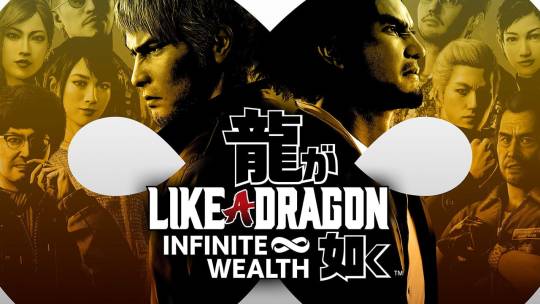
Like a Dragon: Infinite Wealth will launch both physically and digitally for PlayStation 5, Xbox Series, PlayStation 4, Xbox One, and PC via Steam and Microsoft Store on January 26, 2024 worldwide, publisher SEGA and developer Ryu Ga Gotoku Studio announced. Digital pre-orders are now available.
Here is an overview of the game, via SEGA:
■ About
Two larger-than-life heroes, Ichiban Kasuga and Kazuma Kiryu are brought together by the hand of fate, or perhaps something more sinister… Live it up in Japan and explore all that Hawaii has to offer in an RPG adventure so big it spans the Pacific.
Epic Emotional Drama
Two larger-than-life heroes brought together by the hand of fate, or perhaps something more sinister… Ichiban Kasuga, an unstoppable underdog who’s no stranger to crawling up from rock bottom, and Kazuma Kiryu, a broken man facing down his last days.
Best-in-Class RPG Action
Experience one-of-a-kind combat with dynamic, fast-paced RPG battles where the battlefield becomes your weapon, and anything goes. Adapt your party’s skills to the situation with outlandish jobs and customizations to strategically subdue enemies with over-the-top moves.
Infinite Adventure
Live it up in Japan and explore all that Hawaii has to offer in an adventure so big it spans the Pacific. Unforgettable moments await at every step of the journey with a unique mix of quests and activities to enjoy at your leisure.
Locations
Explore Yokohama’s Isezaki Ijincho and the series’ first overseas region, Hawaii! Encounter new faces, create new bonds, and enjoy minigames in these immense and vibrant environments.
Cast
Ichiban Kasuga (portrayed by Kazuhiro Nakaya)
Kazuma Kiryu (portrayed by Takaya Kuroda)
Jo Sawashiro (portrayed by Shinichi Tsutsumi)
Yu Nanba (portrayed by Ken Yasuda)
Eiji Mitamura (portrayed by Ryo Narita)
Eric Tomizawa (portrayed by Satoru Iguchi)
Koichi Adachi (portrayed by Akio Otsuka)
Saeko Mukoda (portrayed by Sumire Uesaka)
Joon-gi Han (portrayed by Yuichi Nakamura)
Tianyou Zhao (portrayed by Nobuhiko Okamoto)
Chitose Fujinomiya (portrayed by Anju Inami)
Seonhee (portrayed by Hana Takeda)
Masumi Arakawa (portrayed by Kiichi Nakai)
Masataka Ebina (portrayed by Hiroki Hasegawa)
Dwight (portrayed by Danny Trejo)
Masataka Ebina (portrayed by Daniel Dae Kim)
■ Game Editions
Standard Edition ($69.99)
Like a Dragon: Infinite Wealth
Deluxe Edition ($84.99)
Like a Dragon: Infinite Wealth
Master Vacation Bundle
Ultimate Edition ($109.99)
Like a Dragon: Infinite Wealth game
Master Vacation Bundle
Assorted Outfit Bundle
Sujimon & Resort Bundle
Yakuza CD Collection Set
■ Pre-Order Bonus Content
Hero’s Booster Pack
This pack allows you to increase your party members’ level and job rank by 1.
Includes:
* These consumable items grant enough EXP to raise a character’s level by 1 and enough Job EXP to raise the rank of the corresponding job by 1. * Please note that these items only grant as much EXP as needed and are therefore of greatest benefit when characters are their furthest from a level or rank up. * These items cannot be used by characters who have reached their maximum level or job rank.
Special Job Set
This set contains the special jobs of Linebacker and Tennis Ace.
* To unlock the Linebacker job, Kasuga’s Confidence must be level 6 or higher. * To unlock the Tennis Ace job, Kasuga’s Charisma must be level 6 or higher.
Watch a new set of trailers below. View a new set of screenshots at the gallery.
Story Trailer
English (Worldwide)
youtube
English (Asia)
youtube
Japanese
youtube
Gameplay Trailer
English (Worldwide)
youtube
English (Asia)
youtube
Japanese
youtube
#Like a Dragon: Infinite Wealth#Like a Dragon 8#Yakuza 8#Like a Dragon Series#Yakuza Series#Ryu Ga Gotoku#Ryu Ga Gotoku Studio#Sega#Gematsu#Youtube
7 notes
·
View notes
